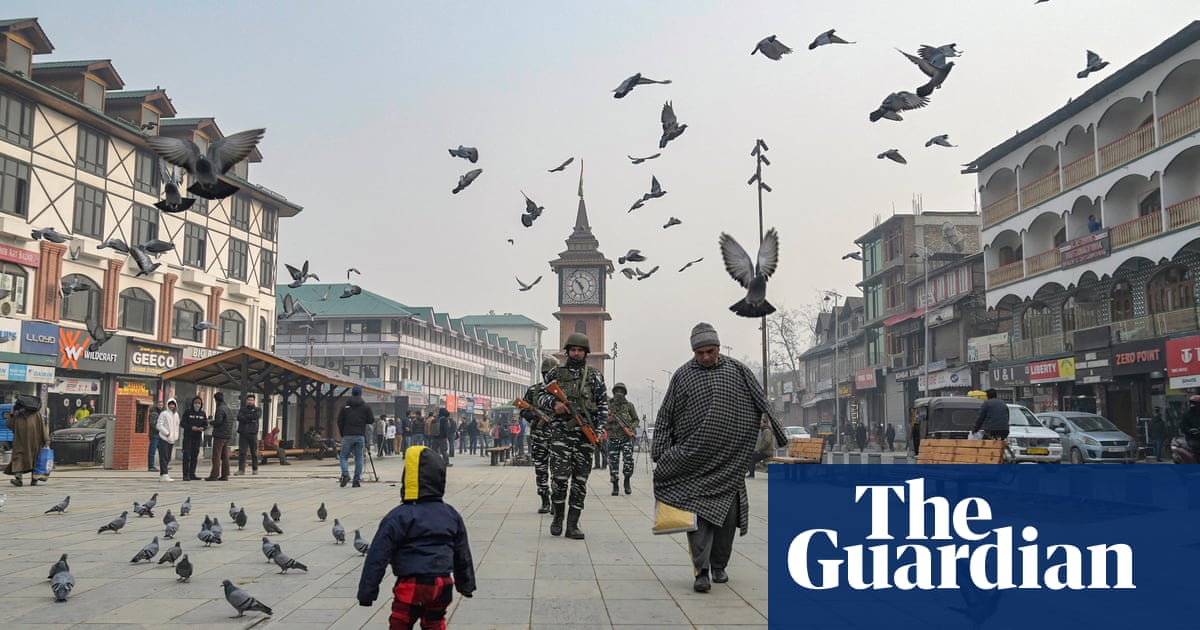
Kashmir lost semi-autonomy when PM Narendra Modi’s government repealed Article 370 of constitution
All parties in the assembly supported the move except for lawmakers from Modi’s Bharatiya Janata Party
NEW DELHI: The newly elected assembly of Jammu and Kashmir passed on Wednesday a resolution requesting the Indian government to start talks for the restoration of the region’s special status.
Kashmir lost its semi-autonomy in August 2019, when Prime Minister Narendra Modi’s government repealed Article 370 of the Indian constitution and downgraded it from state to union territory.
Article 370 acknowledged the special status of the state of Jammu and Kashmir in terms of autonomy and its ability to formulate laws for its permanent residents.
The region has been under direct control of New Delhi since, with India’s Parliament as its main legislator, but last month the territory elected its local legislative assembly, with voters choosing representatives in opposition to Modi’s Hindu-nationalist Bharatiya Janata Party.
The election was the first in 10 years, with the restoration of statehood being a main promise of all contenders, including the BJP.
The National Conference, the oldest party in Kashmir, won the polls and formed a government led by Omar Abdullah, who had earlier served as the chief minister of the state of Jammu and Kashmir between 2009 and 2014.
Wednesday’s resolution was filed by Abdullah’s deputy, Surinder Kumar Choudhary.
“This assembly upon the Government of India to initiate dialogue with elected representatives of people of Jammu and Kashmir for restoration of special status, constitutional guarantees and to work out constitutional mechanisms for restoring these provisions,” the resolution read.
“This Legislative Assembly reaffirms the importance of the special status and constitutional guarantees, which safeguarded the identity, culture, and rights of the people of Jammu and Kashmir, and expresses concern over their unilateral removal.”
All parties in the 90-member assembly supported the resolution except for 29 BJP lawmakers.
After the revocation of Article 370, a series of administrative changes followed, with the Indian government removing protections on land and jobs for the local population, which many in the Muslim-majority region likened to attempts at demographically altering it.
While the restoration of Kashmir’s statehood was on the table, with the region’s New Delhi-appointed lieutenant governor, Manoj Sinha, bringing it up earlier this week, the assembly’s call to restore the special status and protections came as a surprise.
“It was a surprise, but it was expected. It was not expected that this would happen quickly. The NC in its manifesto was committed to do it,” Prof. Noor Ahmad Baba, political science lecturer from the University of Kashmir, told Arab News.
“That is implied that the with the special status statehood, too, would be restored.”
The wording of the resolution, which did not mention Article 370 of the constitution, allowed room for negotiation with New Delhi.
“They have not asked for the restoration of Article 370, they have asked for the safeguarding of culture, identity and rights of the people,” Baba said.
“On the face of it, it looks difficult for New Delhi to accept the demand for special status. But there is also a window open here. It can be a negotiated kind of relationship, which can be symbolically different from Article 370.”
An agreement could also help to improve India’s relationship with Pakistan, he said, and become a “basis for that.”
Indian-controlled Jammu and Kashmir is part of the larger Kashmiri territory, which has been the subject of international dispute since the 1947 partition of the Indian subcontinent into Hindu-majority India and Muslim-majority Pakistan.
Both countries claim Kashmir in full and rule in part. Indian-controlled Kashmir has, for decades, witnessed outbreaks of separatist insurgencies to resist control from the government in New Delhi.












